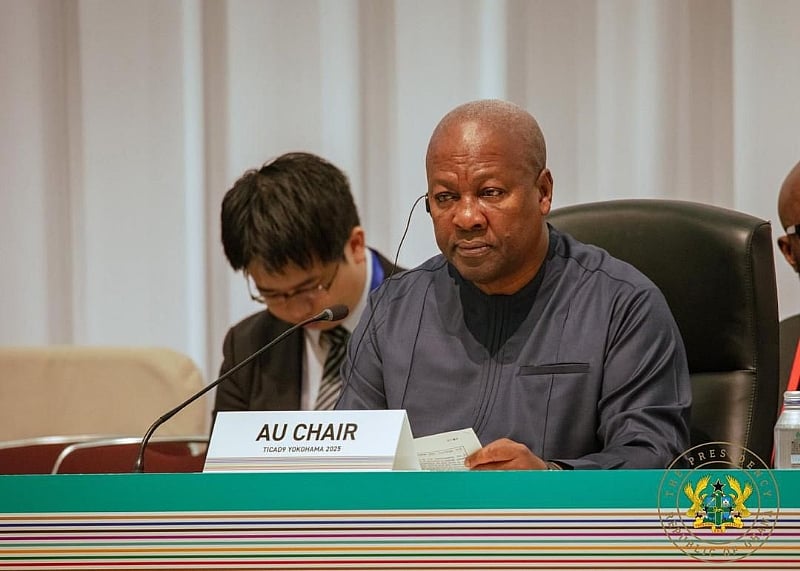President John Dramani Mahama’s call for comprehensive reforms in Africa underscores a critical need for the continent to unlock its vast economic potential. He argues that Africa’s current trajectory, marked by weak governance systems, pervasive corruption, and a reliance on aid, hinders its ability to attract foreign investment and achieve sustainable development. His remarks at the Tokyo International Conference on African Development (TICAD) highlight the urgent need for African leaders to proactively create a conducive environment for business, fostering stability, accountability, and predictability within their economies. This, he asserts, requires a shift in mindset, moving beyond dependence on aid towards building mutually beneficial partnerships with global players. The underlying message is that wishful thinking will not drive investment; rather, concrete actions to reform governance and economic structures are essential.
Mahama’s emphasis on silencing the guns and ending conflicts is particularly relevant. Political instability and violent conflicts create immense uncertainty, deterring investors and diverting resources away from development initiatives. Building a peaceful and secure environment is a fundamental prerequisite for attracting long-term investments and fostering economic growth. By prioritizing peace and stability, African nations can signal their commitment to creating a conducive business environment, reassuring investors and attracting much-needed capital. This, in turn, will contribute to job creation, poverty reduction, and overall economic prosperity.
Addressing corruption within the public sector is another crucial aspect of Mahama’s call for reforms. Corruption erodes public trust, distorts markets, and discourages investment. By implementing robust anti-corruption measures, promoting transparency, and strengthening accountability mechanisms, African governments can foster a more conducive environment for businesses to operate. This involves establishing independent institutions to investigate and prosecute corruption cases, promoting a culture of ethical conduct within the public sector, and empowering civil society organizations to hold governments accountable. A corruption-free environment fosters investor confidence, attracts foreign capital, and ensures that resources are allocated efficiently for development purposes.
Beyond tackling corruption and conflict, Mahama stresses the importance of making African economies more stable and predictable. This requires implementing sound macroeconomic policies, promoting fiscal discipline, and creating a regulatory environment that is transparent and conducive to business. Consistent and predictable economic policies provide investors with the confidence they need to make long-term commitments. Furthermore, simplifying regulations, reducing bureaucratic hurdles, and streamlining administrative processes can help reduce the cost of doing business in Africa, making the continent a more attractive destination for foreign investment.
Mahama recognizes Africa’s immense potential, pointing to its large and growing population, the burgeoning middle class, and the establishment of the African Continental Free Trade Area. These factors represent significant opportunities for economic growth and integration. The African Continental Free Trade Area, in particular, has the potential to create a single, continent-wide market, boosting intra-African trade, driving economic diversification, and creating new opportunities for businesses. By harnessing the potential of these demographic and economic trends, Africa can position itself as a key player in the global economy.
However, Mahama cautions that realizing this potential requires a proactive approach from African leaders. He emphasizes the need to move beyond a mindset of dependency on aid and instead forge genuine partnerships based on mutual benefit. This involves engaging with international partners on equal footing, negotiating fair trade agreements, and attracting investments that align with Africa’s development priorities. By fostering a climate of collaboration and mutual respect, African nations can attract the necessary investments and expertise to drive sustainable development and achieve economic transformation. The key message is that Africa’s destiny lies in its own hands, and proactive leadership is essential to unlocking the continent’s vast potential. Through comprehensive reforms, a focus on stability and accountability, and a shift towards mutually beneficial partnerships, Africa can attract the necessary investment and achieve sustainable economic growth.


